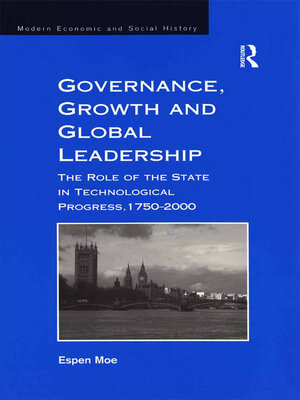Governance, Growth and Global Leadership
ebook ∣ The Role of the State in Technological Progress, 1750–2000 · Modern Economic and Social History
By Espen Moe

Sign up to save your library
With an OverDrive account, you can save your favorite libraries for at-a-glance information about availability. Find out more about OverDrive accounts.
Find this title in Libby, the library reading app by OverDrive.



Search for a digital library with this title
Title found at these libraries:
| Library Name | Distance |
|---|---|
| Loading... |
This book focuses on the role of the state in promoting a country's long-term technological progress and industrial leadership. Throughout history, a nation's rise to dominance has invariably been followed by its fall; the dominant powers of today are not the same ones that controlled the world three hundred years ago. In the same manner, economic dominance has usually been fleeting, as leading nations have routinely been caught up and surpassed by challengers. This study looks at Schumpeterian growth - currently the most important source of economic growth - which credits the ability to use technological progress for the benefit of industrial leadership as the key motor of national development and economic success. Contrasting the experiences of five great powers (Britain, France, Germany, the USA and Japan) during five periods of technological and industrial leadership, from the Industrial Revolution to the beginning of the twenty-first century, the book draws on historical and comparative methods to draw causal inferences about international progress and leadership. It explores various factors that promote or hinder technological advancement and how these can in turn effect national development. It concludes that where states have forged ahead and maintained a lead over their rivals, it is because consensus and cohesion prevented vested interests from growing powerful enough to block structural economic change. By applying economic theory to long-term historical models, this book offers a fascinating perspective on the causes and effects of national growth and industrial leadership. It will be invaluable reading for anyone with an interest in international relations and global economic trends, both modern and historical.







